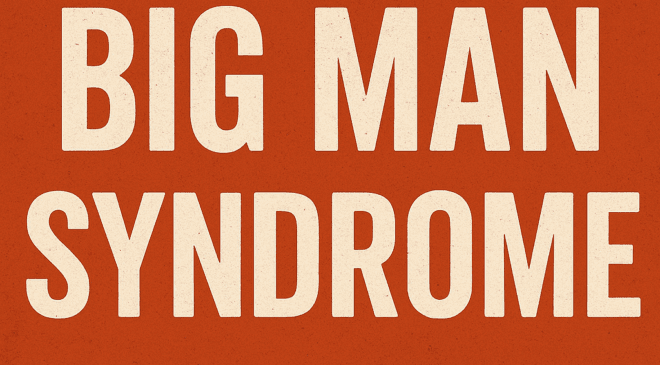
By Chuks Ododo
When Nigerians talk about the country’s problems, familiar culprits come up: corruption, bad leadership, and weak elections. But behind these lies a deeper sickness that feeds them all. It is called Big Man Syndrome, and it has quietly become one of the most destructive forces in Nigerian society.
We see it every day. At supermarkets, airports, schools, public offices, or on the road, someone bypasses the queue with a casual phrase: Do you know who I am? Do you know my father? Do you know my husband? This entitlement is not limited to politicians or the rich. It has seeped into every corner of society. From the children of the elite who use family names to secure admission and scholarships, to middle managers who fast-track promotions for their favourites, to ordinary citizens who wield even the smallest link to power, the culture of privilege thrives while fairness collapses.
In Nigeria, the Big Man is not always a man and not always rich, but is someone protected by money, title, uniform, or access to influence. The result is a system where rules bend for some and harden for others. Queues become optional, laws become negotiable, and public office feels like private property.
The roots run deep. Colonial rule concentrated authority in a few hands. Oil money later weakened the bond between leaders and citizens, as state wealth came from crude exports rather than broad taxation. Scarcity, poor services, and weak enforcement entrenched the habit of bending rules. Networks became survival tools, and the Big Man emerged as benefactor, broker, and gatekeeper.
The effects are corrosive. Graduates miss deadlines because their transcripts are delayed unless they pay a fixer. Trucks stuck at checkpoints cause food prices to rise in city markets. Informal fees act as hidden taxes on the poor. Promotions and opportunities are handed out by connection rather than merit, suffocating talent and discouraging hard work. A so-called Big Man can stop a plane from taking off or flout the law with impunity, while ordinary citizens who dare the same are humiliated or punished.
Even public servants admit the pressure. “We are underpaid and overloaded. When someone important calls, we snap to attention because there will be consequences if we don’t. For the ordinary person, there is no consequence if we delay,” said one civil servant in Abuja. A taxi driver in Port Harcourt put it more bluntly: “Big man no dey queue. If I talk, who go hear me?”
The danger is clear: this culture has created two kinds of citizens — those who live above the law, and those who live under it. It deepens inequality, passes privilege down like an inheritance, and destroys faith in public institutions. Worst of all, it fuels resentment among the youth, who begin to believe that only by becoming a Big Man themselves can they survive.
The truth is that bad leadership and corruption are not the root of Nigeria’s problems but symptoms of this deeper virus. A country where “Do you know who I am?” carries more weight than the law cannot move forward.
There are solutions, but they demand more than slogans. Public offices must publish and meet clear service timelines. Transparent queues, open procurement, and whistleblower protection would help break the grip of privilege. Fair pay and accountability for public workers would reduce the lure of shortcuts. Digital systems can cut out middlemen, but only if they are simple and reliable. Above all, Nigeria needs a cultural shift: to stop celebrating those who abuse power and to reward those who respect due process.
Nigerians adapt quickly when rules are clear and fair. The rise of mobile transfers showed how fast behaviour can change once systems are safer and easier. Many still speak with pride when they encounter a government agency that delivers without a bribe or a favour. The appetite for fairness exists.
Big Man Syndrome persists not because Nigerians prefer unfairness, but because the system keeps rewarding it. The cure is patient and steady: make rules the shortcut, make fairness the fastest route, and prove it works. Until then, the weary shrug of a hawker on Ikorodu Road will remain the people’s verdict, No be today.
